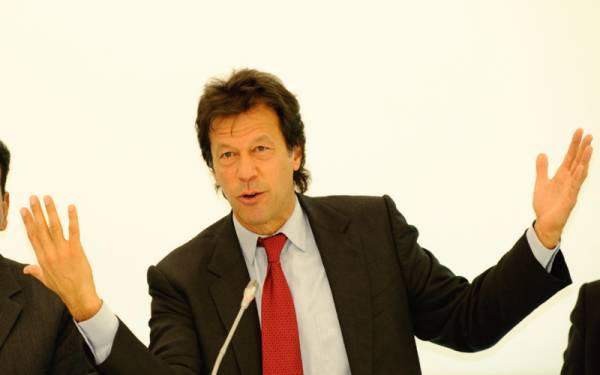🗓️
اسلام آباد {سچ خبریں} وزیر اعظم عمران خان نے کہا ہے کہ اگلی نسلوں کی بہتری کے لیے طرز زندگی کو بدلنا ضروری ہے۔
وزیر اعظم عمران خان نے موسم بہار کی شجرکاری مہم کا آغاز کرنے کے بعد تقریب سے خطاب کرتے ہوئے کہا کہ آنے والی نسلوں کی بہتری کے لیے ضروری ہے کہ طرز زندگی کو بدلا جائے اور شجرکاری آنے والی نسلوں کے لیے ضرروی ہے۔
انہوں نے کہا کہ لاہور اور پشاور کو گارڈن سٹی کہا جاتا تھا لیکن آج صورتحال مختلف ہے۔ لاہور میں 50 جگہوں پر میوا کی ٹیکنالوجی کے ذریعے درخت لگائے جائیں گے۔
وزیر اعظم نے کہا کہ میری خوش قسمتی ہے کہ میں پاکستان کے ہر کونے میں گیا ہوں، یہ پاکستان ہمارے لیے اللہ کی طرف سے تحفہ ہے لیکن ہم اس کی قدر نہ کر سکے۔ میں نے پوری دنیا دیکھی ہے لیکن اللہ تعالیٰ نے پاکستان کو بے شمار نعمتوں سے نوازا ہے۔
انہوں نے کہا کہ درخت کاٹنے کے باعث آج لاہور میں آلودگی ہے، ہمیں درخت لگانے کا شوق نہیں بلکہ یہ ہماری ضرورت ہے کیونکہ ہم ان 10 ملکوں میں شامل ہیں جو موسمیاتی تبدیلی سے متاثر ہوتے ہیں۔
عمران خان نے کہا کہ ہمارے 10 ارب درخت لگانے کے منصوبے کو دنیا نے سراہا ہے اور اب ہمیں درخت لگانے کے ساتھ پھر ان کو بچانا بھی ہے۔


مشہور خبریں۔
پشاور میں پولیس نے داعش کے کمانڈر سمیت 3 دہشتگردوں ہلاک کر دیا
🗓️ 21 دسمبر 2021پشاور(سچ خبریں) پشاور کے فقیر آباد تھانے کی حدود میں خفیہ اطلاع
دسمبر
پولنگ اسٹیشن کے اندر توڑ پھوڑ، قادر مندوخیل اور دیگر کے خلاف مقدمہ درج
🗓️ 20 فروری 2024کراچی: (سچ خبریں) کراچی میں قومی اسمبلی کے حلقہ این اے۔242 سے
فروری
لاہور ہائی کورٹ نے توہین عدالت کیس میں وزیراظم کے خلاف سماعت کی
🗓️ 10 اپریل 2021لاہور (سچ خبریں)لاہور ہائی کورٹ کے جسٹس باقر نجی نے وزیراعظم کے
اپریل
لاکھوں بے گناہ افراد کے قتل عام پر خاموش رہنے والے امریکی صدر اپنے کتے کی موت پر شدید غمزدہ ہوگئے
🗓️ 23 جون 2021واشنگٹن (سچ خبریں) فلسطین، یمن، افغانستان اور دوسرے متعدد ممالک میں دہشت گردوں
جون
سائفر کیس میں فرد جرم کیخلاف کیس پی ٹی آئی وکلا کی درخواست پر ملتوی
🗓️ 22 دسمبر 2023اسلام آباد: (سچ خبریں) بانی پی ٹی آئی عمران خان اور سابق
دسمبر
فیمنزم پر یقین نہیں رکھتی، عورت کو گھر میں ہی رہنا چاہیے، مائرہ خان
🗓️ 31 اکتوبر 2024کراچی: (سچ خبریں) ماڈل و اداکارہ مائرہ خان نے کہا ہے کہ
اکتوبر
الاقصیٰ طوفان صہیونیوں کے خلاف ایک اہم جنگی موڑ
🗓️ 7 اکتوبر 2024سچ خبریں: الاقصیٰ طوفان آپریشن کی برسی پر ردعمل کے بعد فلسطینی مزاحمتی
اکتوبر
آئی ایم ایف پیکج کی مدد کے باوجود ڈالر کی اونچی اڑان برقرار
🗓️ 24 ستمبر 2022اسلام آباد: (سچ خبریں) آئی ایم ایف پیکج اور دوست ممالک کی
ستمبر